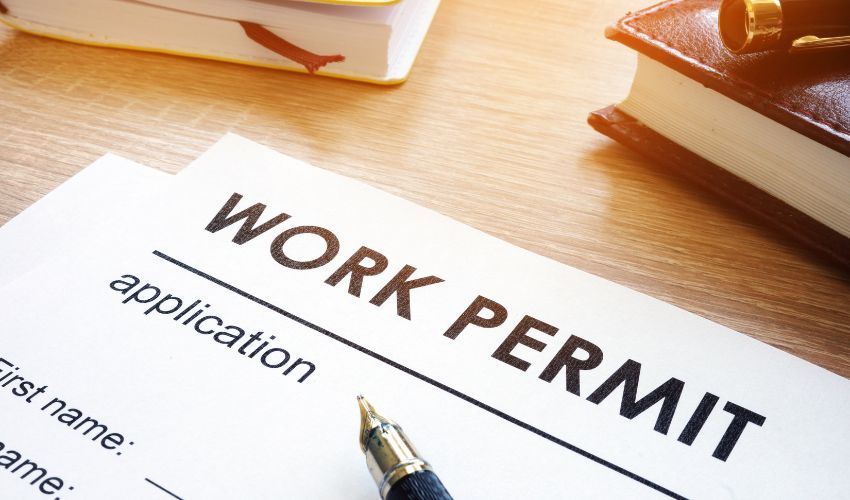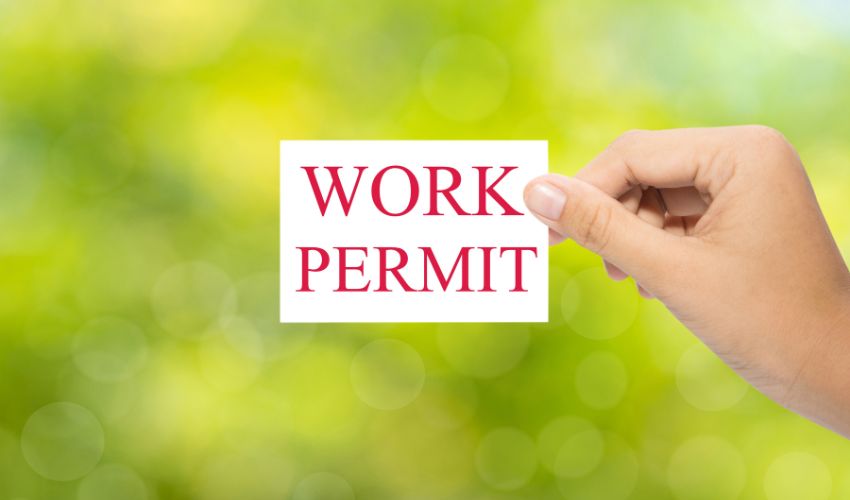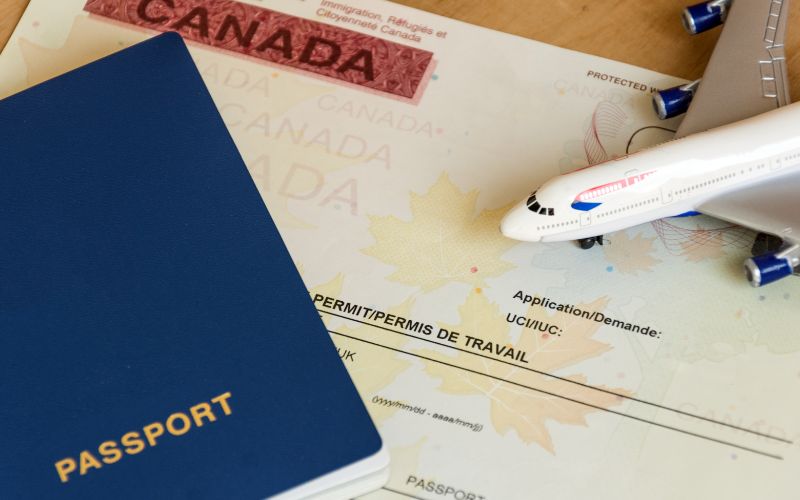IRCC Extends Work Permit Canada Applications For Visitors
Canada Work Permit Extension the application deadline for Foreign Individuals who obtain a genuine Canadian job offer while visiting Canada will still be allowed to apply for and be granted a work permit Canada without requiring leaving the country.
Visitors who applied under this public policy and had a work permit during the previous year may still apply for a temporary work permit to start working for their new employer more quickly. This COVID-era temporary public policy, which was supposed to end today, has been extended by two years to February 28, 2025. Employers in Canada can benefit from visitors already in Canada to fulfill labour gaps because many are dealing with severe labour shortages during economic expansion.
Previously, applicants who wanted to work in Canada used to have to apply for their initial work permit Canada before they arrived, but this temporary policy change eliminates that requirement. If they had visitor status when granted a work permit, they would have to leave the country to receive their work permit. This policy eliminates the need to leave Canada.
This means more visitors can pursue their professional goals and gain work experience in Canada. Those who have gained at least one year of work experience in Canada and meet other criteria, such as minimum language and education levels, are eligible for Canada permanent residency (Canada PR) under the Canadian Experience Class (CEC) program of Canada Express Entry.
An applicant seeking to take advantage of this temporary public policy must meet all the eligibility requirements, including having legal status as a visitor in Canada on the day they apply, having a job offer that is supported by a labour market impact assessment (LMIA), or an LMIA-exempt offer of employment, and submitting an application for an employer-specific work permit by February 28, 2025.
To obtain temporary work permits to begin working for their new employer before their work permit Canada application is approved, applicants who presently have visitor status but who have held a valid work permit within the last 12 months can follow guidelines.

How do we get a Canadian work permit?
You can get a work permit under two major work permit programs:
The main difference is that the IMP allows Canadian employers to hire TFWs on a Canadian work permit Canada without requiring an LMIA (Labour Market Impact Assessment). On the other hand, the regular TFWPs require employers to test the Canadian labour market to prove a labour shortage by receiving an LMIA and consequently applying for Work Permit.
What is a Canadian IMP work permit?
The International Mobility Program (IMP) allows employers to hire temporary workers without an LMIA, which does not mean being exempt from obtaining a work permit Canada requires to work in Canada legally. Exemptions from the LMIA process are based on both of the following:
- The broader economic, cultural, or other competitive advantages for Canada (Significant benefits such as Entrepreneurs and Self-Employed Persons, dependents of Foreign Workers (Spousal open Work Permit Canada) or students, French-Speaking Skilled Workers, Academics, Charitable or religious workers, and Intra-Company Transferees)
- The reciprocal employment benefits enjoyed by Canadians and permanent residents (Such as International Agreements and International Exchange Programs)
Which occupations are exempt from LMIA?
1- Related to an international agreement like CUSMA or GATS, and non-trade agreements. This can include professionals, traders, and investors.
2- Related to an agreement between Canada and a province or territory. This includes “significant investment” projects.
3- Exempt for “Canadian interests” reasons:
A-“significant benefit” – if your employer can prove you will bring an essential social, cultural, and economic benefit to Canada. This can include:
- General: Self-employed engineers, technical workers, creative and performing artists, etc.
- Workers transferred within a company (intra-company transferees, ICT Work Permit, with specialized knowledge) – only those that will benefit Canada with their skills and experience.
- Workers under Mobilité francophone
B- Reciprocal employment – lets foreign workers get jobs in Canada when Canadians have similar opportunities in other countries
- General (such as professional coaches and athletes working for Canadian teams)
- International Experience Canada (IEC)– a work abroad program for youth and young professionals
- People in exchange programs, like professors and visiting lecturers
C-Designated by the Minister
- Academics, including researchers, guest lecturers, and visiting professors (sponsored through a recognized federal program)
- Competitiveness and public policy (Medical residents and fellows & post-doctoral fellows, and people who have won academic awards from Canadian schools)
D-Charity and religious work (not including volunteers)

How Can We Assist You?
At ARNIKA VISA, we help you to find the most tailored strategy to get your Canadian work permit Canada. From filing the immigration forms to guiding you through supporting documents, we take care of it all. We can assist you entirely or partially based on our different packages. We can advise you professionally regarding the required personalized supporting documents to increase the chance of your approval and, finally, submit your application to IRCC on your behalf as an authorized representative. Suppose you want to discover how the RCIC can help you. In that case, the first step is to complete the Assessment Form (To detail your personal, educational, and employment information) available on the site.



